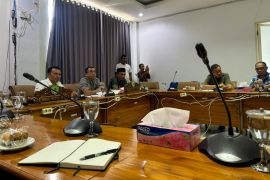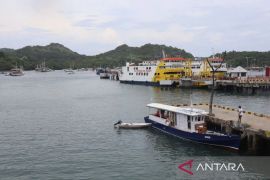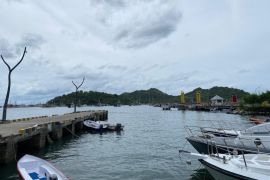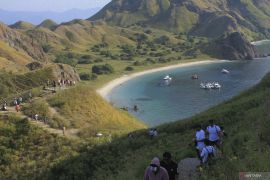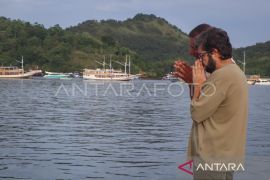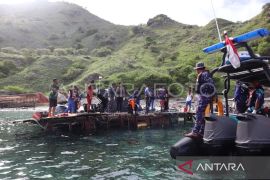
Feature - Benefits from BOP for Labuan Bajo
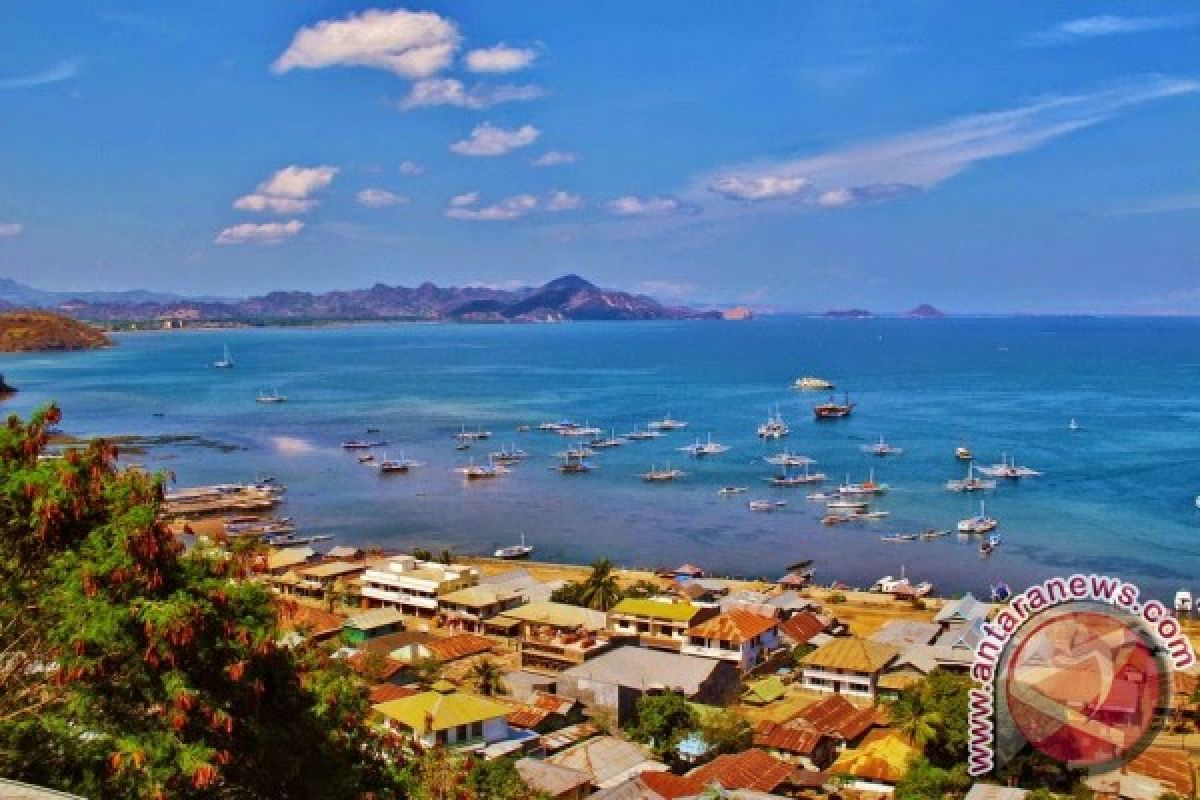
Developing Indonesia from the frontier areas to strengthen the Unitary State of Republic of Indonesia (NKRI) has been a big vision of President Joko Widodo to narrow the lopsidedness of development.
Kupang, E. Nusa Tenggara (AntaraNews NTT) - Developing Indonesia from the frontier areas to strengthen the Unitary State of Republic of Indonesia (NKRI) has been a big vision of President Joko Widodo to narrow the lopsidedness of development.
For the first time development has shifted in priority from Java to other regions to cover areas from less developed regions Aceh to Papua. Massive infrastructure development program of Jokowi is for long term gain to provide strong foundation for sustainable economic development, analysts have said.
"Jokowi does not seek image projection as his critics want to say. If he did he would have focused on short term development projects to give short term satisfaction for the people," they said.
His vision of long term development program has drawn the attention of Jokowi to potential tourists areas of Lake Toba in North Sumatra and Labuan Bajo and Komodo Island in East Nusa Tenggara, beside development program in Papua, Kalimantan and Sulawesi more for equitable development and to bring modernity to frontier areas.
Lake Toba and Labuan Bajo have been included in priority areas of development among 10 major tourist destination areas that also include Tanjung Kelayang in the province of Bangka Belitung, Tanjung Lesung in Banten, Borobudur temple in Central Java, Bromo Tengger Semeru in East Java, Mandalika in Lombok, West Nusa Tenggara, Wakatobi in Southeast Sulawesi Tenggara and Morotai in Maluku, the Thousand Island off Jakarta.
The focuses are no longer in Java and Bali alone bur have widened to various areas regions in the country. Development of tourism industry around Lake Toba already underway with the development of an international airport of Silangit to facilitate transport to the lake on top of the Mukit Barisan mountain around 900 meters above the sea surface.
The Tourism Authority Body (BOP) is put in charge of development of the potential tourist destination, similar to the model in charge of Batam industrial area.
Baca juga: Labuan Bajo put under tourism authority body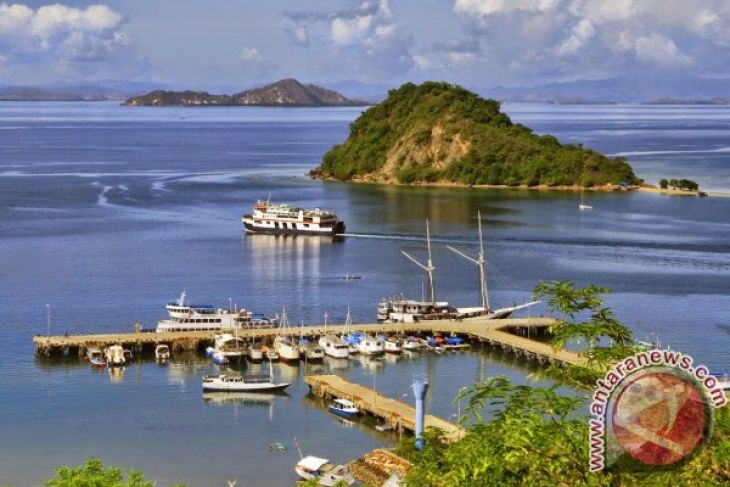
BOP is in charge of protecting natural attractions and local cultures, development of basic infrastructure such as roads, and ports to support tourism development and provide amenities and accommodations like hotels in cooperation with the private sector, Tourism Minister Arief Yahya said.
However, BOP would be made in charge only of the most potential among the 10 tourist destination areas such as Lake Toba. Lake Toba has been a pilot project of under BOP to be the model for BOP in other main destination areas.
BOP is represented by a number of related ministries such as the Public Works , the Transport, and the Tourism Ministries. Its operations are financed mainly with budget funds
Minister Arief said the budget for BOP reaches around Rp6.5 trillion from the state budget. In the 2015 state budget, the funds for basic infrastructure projects in tourist destination areas totaled Rp4.5 trillion from the Public Works Ministry and Rp2 trillion from the Transport Ministry .
BOP for Labuan Bajo
The forming of BOP for Labuan Bajo in the regency of Manggarai Barat, in the western end of the island of Flores,had once been delayed over difficulty in land clearing.
"The draft has been prepared and already approved by the relevant ministries but President Joko Widodo did not immediately put his signature on the draft as the land needed for the Labuan Bajo project had yet to be approved by the Minister for Forests and Environment," secretary of the NTT Tourism Service Welly Rohi Mone said.
There were 400 hectares of the land belonging to the Forestry and Environment Ministry needed by the BOP but the ministry could give only 136 hectares.
The reason was that more than 200 hectares of the land are conservation forests. "Around 264 hectares of lands have yet to cleared.This has to be settled first before the draft is be brought up to the president," Rohi Mone said.
Baca juga: NTT expects to operate direct flights on China-Labuan Bajo route
Fortunately, President Joko Widodo through Presidential Regulation No.32 of 2018 on 5 April 2018, determined Labuan Bajo, the municipal city of the district of Manggarai Barat as a BOP area.
Head of the Tourism Promotion of the East Nusa Tenggara Tourism Service Eden Klakik said he just received an information from the Tourism Ministry about the presidential decree putting Labuan Bajo under BOP three presidential regulation No.32 in 2018, on 5 April 2018.
"The decision to make Labuan Bajo as a BOP area is because of its function as the main access to the Komodo National Park, which was formed in 1980," Eden said.
Komodo island, now one of World`s seven Wonders of Nature, is famous for being the habitat of the ancient dragon Komodo, not found in other place in the world. The government is building an international airport in Labuan Bajo to facilitate holiday makers wanting to see the giant lizards on the small Indonesian island.
The place is also suitable for snorkeling , diving and trekking making the island always crowded with tourist especially in long holidays. The government hopes to make tourism one of the country`s main foreign exchange earners with target to attract at least 20 million foreign tourists in 2019.
This year, the target is set at 17 million and Komodo Island is expected to contribute significantly to achieving the target. Around 500,000 foreign tourists are predicted to visit the Komodo island via Labuan Bajo in 2015 or more than five times larger than 90,000 in 2015.
The local people are enthusiastic with the government decision to make Labuan Bajo a BOP area as it is expected to boost development of the tourism industry and the economy in general in the western end of Flores. The annual event of cycling race Tour de Flores would also contribute to promoting tourist objects in Flores including Labuan Bajo in the world.
Baca juga: Two international hotels being built in Labuan Bajo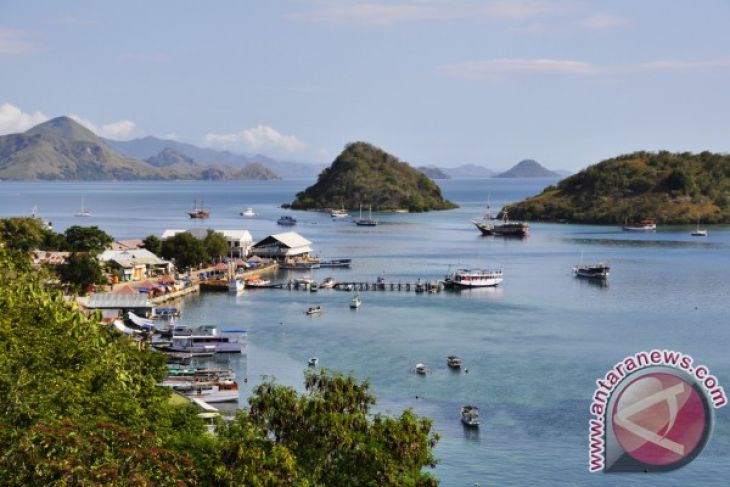
Pewarta : Laurensius Molan
Editor:
Laurensius Molan
COPYRIGHT © ANTARA 2026

